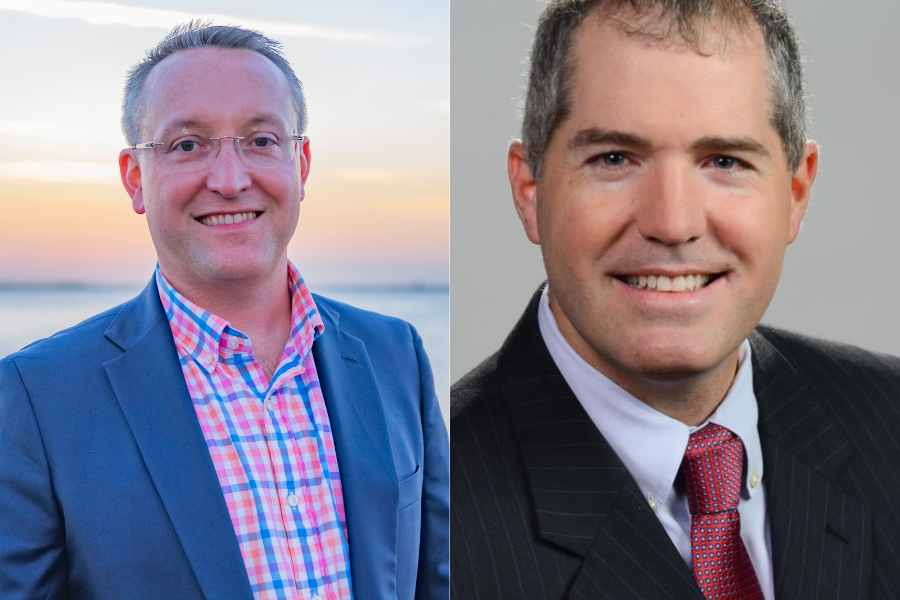Ric Edelman proposes Social Security fix: Allot $7,000 for each baby
Adviser's plan begins with the federal government setting aside money for each newborn baby for 35 years, to be invested for the child's retirement.
A prominent financial adviser is proposing to fix the Social Security system by using the same approach that he recommends to clients: Start saving early and take advantage of compound growth.
Ric Edelman, executive chairman of Edelman Financial Services, introduced a plan Wednesday in which the federal government would set aside $7,000 for each newborn baby for 35 years and invest the funds for the child’s retirement. An investment board appointed by Congress and the president would make portfolio decisions. After the initial 35 years, the government would recoup its initial outlay and use the proceeds to reinvest for the next 35 years of births.
After 35 years, the average value of the investment for each child would be $93,000, based on an annual 7.68% return, according to Mr. Edelman. By the time child retires at 70, he or she would have $1 million, or an average monthly payout of about $1,341, which matches the current Social Security benefit.
His plan — which he calls Tomorrow’s Retirement for the U.S. Today Fund for America, or the T.R.U.S.T. Fund for America — would cost the government a total of less than $1 trillion over 35 years, according to Mr. Edelman. At the same monthly benefit, he said it would cost $7,000 per worker instead of the more than $600,000 per worker now collected through Social Security taxes.
“It’s a very simple, elegant solution simply based on the concept of compound growth,” Mr. Edelman told reporters at the National Press Club in Washington. “The Social Security system in its current form is unsustainable. We need to consider innovative solutions.”
The Social Security Trust Fund is expected to be depleted by 2033, which would require a cut of about a third in the monthly benefit. The average U.S. household has saved about $120,000 in retirement accounts and depends on Social Security for up to half of its retirement revenue, according to Mr. Edelman.
Reforming Social Security is a volatile topic. When lawmakers suggest cutting benefits or raising the retirement age, they are vulnerable to campaign attacks.
His plan would augment the current Social Security system rather than a replace it, Mr. Edelman said. Over time, maybe at the end of the first 35-year cycle, it might be adopted as an alternative. He said he has not yet tried to build political support for his idea.
Ric Edelman: Dramatic changes advisers don’t see coming
“If this has any validity to it, people will respond to it and perhaps delve into viability, not just economic viability but, more importantly, political viability,” Mr. Edelman said.
He touted the plan as offering something for both parties. For Democrats, it is not a threat to the current Social Security system. For Republicans, it’s a “market-based solution.”
“It is my hope that this will provide a new opportunity for conversation that has been lacking,” Mr. Edelman said.
Mr. Edelman compared his plan favorably to Social Security reform offered last fall by the Bipartisan Policy Center in Washington, which he said would cost $12.5 trillion in new taxes and benefit cuts.
But Shai Akabas, BPC director of fiscal policy, said the think tank’s plan “achieves sustainable solvency” for Social Security, preventing automatic cuts for retirees and those nearing retirement and increasing benefits for low-income people.
“It was a permanent solution in the way it was scored by the chief actuary of the Social Security Administration,” Mr. Akabas said.
How big an impact the TRUST Fund for America will have on the federal budget and how it would be integrated are the biggest obstacles its faces, according to Mr. Edelman. But he said the U.S. would collect $86 billion in tax revenue when retirement income is distributed.
“In 35 years, we should be able to eliminate the current Social Security system,” Mr. Edelman said.
Learn more about reprints and licensing for this article.








